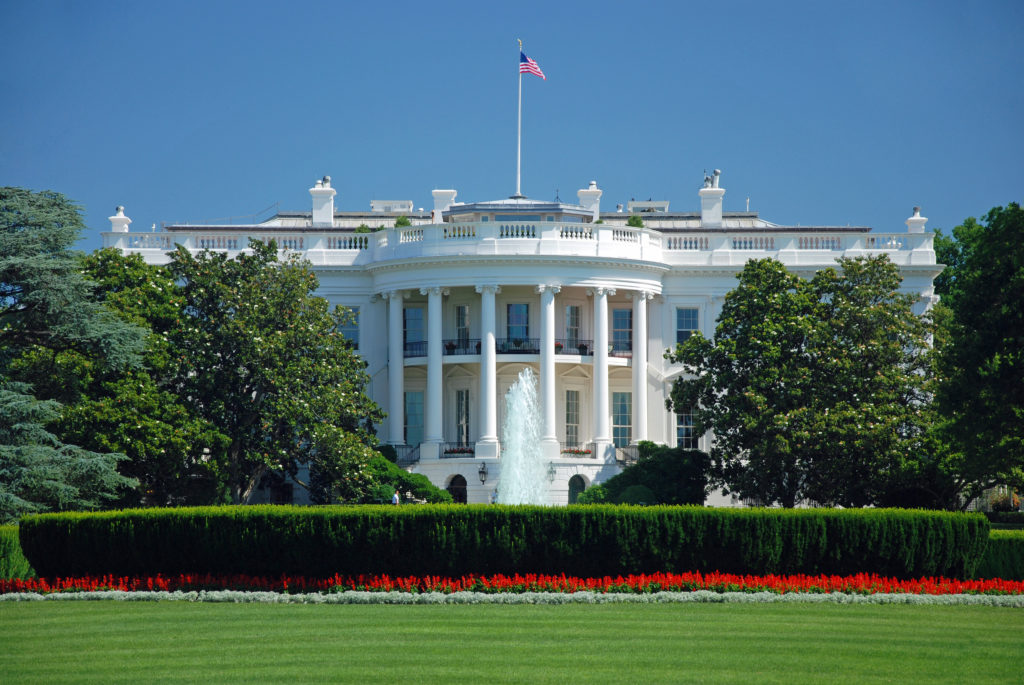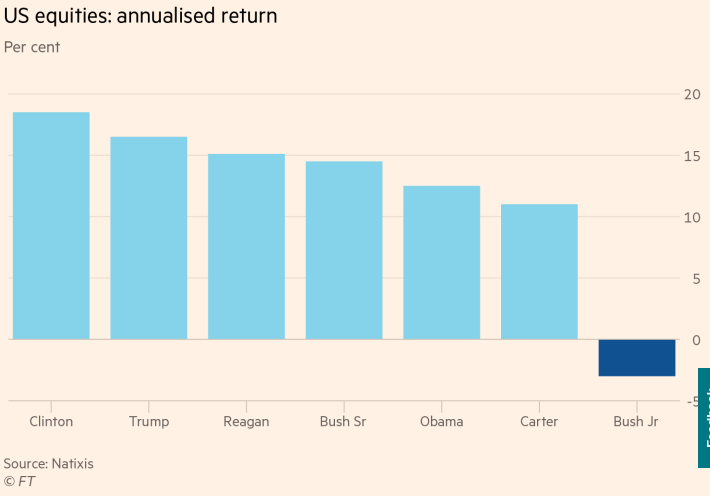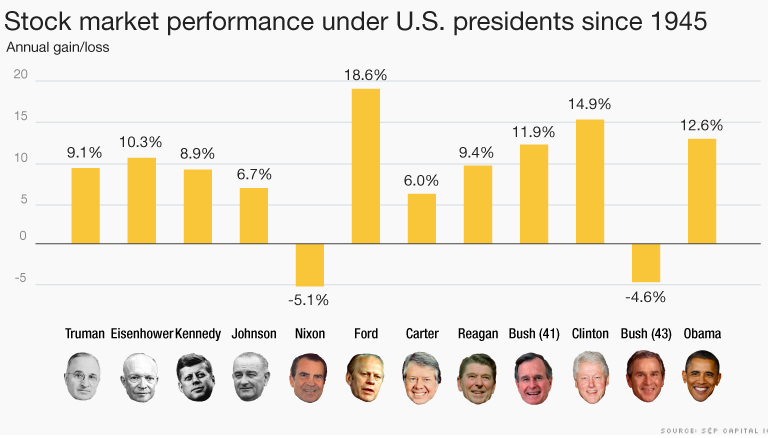
President Trump argues that the stock market has flourished with him in the oval. For example, the incumbent told reporters it is the “highest stock market in history” and “the reason our stock market is so successful is because of [him].” His claim alludes to a broader belief that the stock market fares better under Republican presidents as compared to their Democratic counterparts, due to their perceived pro-market and pro-business philosophies. Democrats, in contrast, can easily argue the opposite — research to support either party is plentiful. However, the below graph created with Natixis Investment data may demonstrate that the US equities market does not subscribe to political biases.

Natixis’ research, looking at stock market data from 1976 to present, concluded that the average annualized return under a Republican president has been 10.6 percent with Democratic presidents ringing in at 14.3 percent. However, the Bush Jr. presidency, where the S&P 500 faced a cumulative 22 percent fall, accounts for a significant decrease in the Republican average. On the other hand, the Clinton presidency significantly boosts the Democratic average.
With these insights in mind, it becomes clear that a President’s party affiliation is not as representative of stock market success or failure as one may be quick to believe. Additionally, Democratic Presidents are historically more likely to be elected following economic slumps where the stock market is likely to rebound, skewing the data further.
Similarly, Fisher Investments’ research finds “there isn’t great evidence that a President from either party is particularly better for stocks than the other.” The company also takes into consideration which party controlled Congress — an additional variable which makes the data increasingly unclear.

However, that is not to say the incumbent’s political affiliation carries no market correlation. Fisher Investment explains that in presidential election years when a Republican is elected, the market is up an average of 17.9 percent in comparison to -2.7 percent when Democrats are. In contrast, during the first year of a Republican’s presidency, the market is up an average of 2.6 percent compared to 22.1 percent with a Democratic candidate. In simpler terms, there are times when both parties fare better than the other in terms of stock market success.
These stark contrasts are more so related to investors’ perception of the political party’s relationship with the economy rather than the actual policies. For example, investors perceive Republicans as more pro-business and Democrats as more pro-social policies leading to high trust and strong returns in the market when a Republican is elected and vice versa.
In sum, variations in stock market performance likely have more to do with economic boom-and-bust cycles than the President’s political party. A partner at wealth manager London & Capital Iain Tait explains, “We should always be mindful that economic cycles cannot be abolished, even by a politician.” A booming stock market does not necessarily correlate with a successful presidency, and a successful presidency does not necessarily correlate with a booming stock market.
This report is a publication of Demand Wealth. Information presented is believed to be factual and up-to-date, but we do not guarantee its accuracy and it should not be regarded as a complete analysis of the subjects discussed. All expressions of opinion reflect the judgment of the author as of the date of publication and are subject to change.
